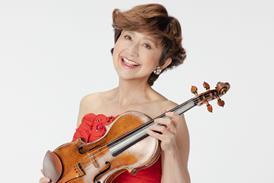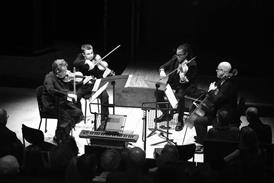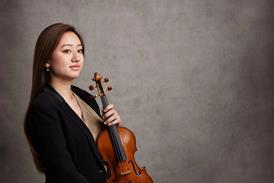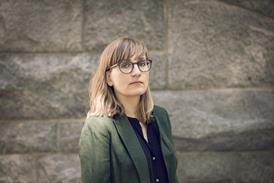- News
- For Subscribers
- Student Hub
- Playing Hub
- Podcast
- Lutherie
- Magazine
- Magazine archive
- Whether you're a player, maker, teacher or enthusiast, you'll find ideas and inspiration from leading artists, teachers and luthiers in our archive which features every issue published since January 2010 - available exclusively to subscribers. View the archive.
- Jobs
- Shop
- Directory
- Contact us
- Subscribe
- Competitions
- Reviews
- Debate
- Artists
- Accessories
‘I’ve always been led by music’: cellist and gambist Christophe Coin

For Christophe Coin, the French cellist, gambist and musical time-traveller, historically informed performance practice involves a combination of forensic-level investigation and leap-of-faith creativity. In conversation with Helen Wallace, he describes the instruments and scholarship behind his work as an interpreter
‘As instrumentalists, we seem to have lost our creative ambition.’
I’m talking with the quietly spoken Christophe Coin as he warms up on an exquisite gut-strung Guadagnini cello, on loan for a concert at the Royal Northern College of Music, Manchester, with his Quatuor Mosaïques. He’s about to rehearse some Beethoven quartets, and is musing on those crucial years when the 18th century tipped into the 19th: ‘I’m fascinated by that period, by the instrumentalists and how they developed musical possibilities. All the best cellists of that time – Boccherini, Jean-Louis Duport, then Romberg, Dotzauer and later Piatti – were wonderful improvisers and composers. They not only informed the great composers, but also wrote high-quality music themselves.’
No one could accuse Coin of a lack of ambition. As a performer, director and scholar he is surely one of the most complete cellists alive today: complete in his luminous mastery of viols and cellos from every chapter in those instruments’ history, a player as delightfully at home in Marais’s Pièces de viole as he is in Schubert’s Arpeggione Sonata (on the arpeggione) or Schumann’s Cello Concerto; complete, too, in his profound knowledge of repertoire from the early 17th into the late 19th century, and in his ability to bring this music alive through imaginative realisation and consummate technique. He boasts (although, self-effacing to a fault, he would never actually boast) a currently available catalogue of more than 40 solo recordings and 30 with the Quatuor Mosaïques, many of them groundbreaking historical projects. Dipping into his 2014 disc of Wagenseil cello concertos or his Grammy-winning Haydn quartet series (recorded 2001), one feels an immediate sense of being engaged in a lively, illuminating conversation.
Already subscribed? Please sign in
Subscribe to continue reading…
We’re delighted that you are enjoying our website. For a limited period, you can try an online subscription to The Strad completely free of charge.
* Issues and supplements are available as both print and digital editions. Online subscribers will only receive access to the digital versions.




























